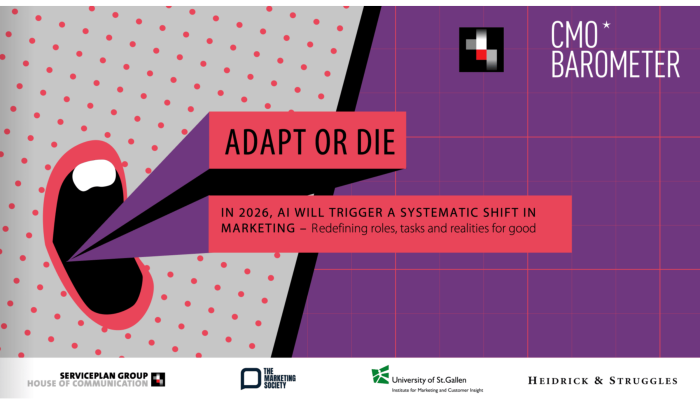Sarah Riggott, Group Marketing Director at CSM, considers how the sport and entertainment industry continues to be a force for good in troubled times.
The term ‘in isolation’ is defined as ‘without relation to other people or things; separately.’ It is the antithesis of what our species craves, what enables society to flourish and what sets this industry apart in its ability to nourish our most fundamental need: that human connection to a cause greater than any individual could muster alone. This is what makes sport and entertainment irrepressible.
Our industry is not immune to the impact of a global pandemic. Faced with this unprecedented challenge, separation has become essential. A quarter of the world now finds itself in lockdown. Sport and live entertainment is rightly on hold. With respect to the great Bill Shankly, the Olympics and Glastonbury are not, and never will be, a matter of life and death.
Millions around the world are familiarising themselves with life in isolation, putting a spotlight on what we value most. The answer, which I have witnessed - and what CSM is highlighting in its #ExperienceGood campaign, is unequivocally ‘community.’ Shared global concern has sparked concerted local action. A call-to-action that the world of sport and entertainment has readily accepted. An industry on pause need not be one without purpose.
Brands, rights holders, broadcasters, talent and audiences are all asking themselves, ‘How can we do our bit to preserve what matters most: one another?’ The greater cause has shifted from our passions to our communities. Jean Vanier, the Canadian Philosopher, spoke aptly when he said: “One of the marvellous things about community is that it enables us to welcome and help people in a way we couldn't as individuals.”
Nothing embodied that sentiment more cogently than the #HowCanIHelp movement that emerged in response to this outbreak; an online clarion call demanding offline action. Across the industry, stakeholders mobilised to join this wave of humanity. In a sector that often fetishises individual brilliance and tribal allegiances, the shared quandary we now find ourselves in has provided a poignant reminder of the power of our collective whole. Physically we may no longer be together, but our emotional solidarity remains intact.
That ethos was apparent as Manchester United and Manchester City donated a combined £100,000 to local food banks last week, burying their fierce inter-city rivalry to support those most susceptible to the threat of coronavirus. Aston Villa, IndyCar and the PGA Tour also turned their attention to those who needed it most, redistributing unused food from postponed events to vulnerable community groups. And as the world confronts the harsh economic costs of this crisis, a host of NBA teams were quick to promise remuneration for all staff currently unemployed during the season’s enforced suspension.
Those at the cutting edge of technology and innovation are redirecting their engineering expertise to fight COVID-19. Seven UK-based F1 teams will now focus manufacturing efforts on producing 20,000 ventilators for the NHS, amid a tragic shortfall in crucial medical equipment. MLB’s official apparel supplier Fanatics, meanwhile, has diverted its production services to help provide one million medical masks and gowns for healthcare workers in the US. Consumer brands including LMVH and Titos Vodka are answering the call by converting distilleries into production sites for vital supplies of hand sanitiser.
Marketing campaigns are being reimagined to encourage social distancing. Nike’s ‘play inside, play for the world’ message reminded us of our collective duty to stay indoors, and Guinness called for responsible St Patrick’s Day celebrations. McDonald’s, Coca-Cola and Time Out updated their logos to provide a visual reminder of the need to remain apart.
Athletes and actors are also rising to the challenge. With schools shutting down across the USA, Jennifer Garner and Amy Adams established #SaveWithStories, an online reading resource for children, while Marcus Rashford and Steph Curry put crucial funds towards meals for students no longer being catered for at college. In Italy, international rugby star Maxime Mbanda is working 13-hour shifts as an emergency ambulance driver.
Beyond this instinctive desire to help, we have also witnessed a more playful response to this crisis, as the industry resolves to provide moments of positivity that can help punctuate our current predicament.
With restrictions imposed on our movement, social media has become the new medium for emotional connection. Physical communities - the type you would usually find at the local pub, playground or pitch, have been replaced by online social squares, as we learn to communicate not face-to-face but through Google Hangouts and Houseparty.
Visits to social networking sites are surging, up 11% in Germany and 55% in Spain, while Vodafone has revealed a 50% spike in internet usage across Europe.[1] As the global population adapts to working from home, we are unsurprisingly spending more time online. In response, proactive brands have pivoted to a digital-first output, as they strive to maintain an open dialogue with fans.
Replicating the sensory overload experienced at live sport is a chimera, but rights holders are innovating to help fill the void left behind by a world without sport. LaLiga experimented successfully with hosting a FIFA 20 tournament online; Formula 1 and NASCAR both launched an official virtual series to keep fans engaged in the absence of asphalt action; MLB celebrated #OpeningDayAtHome, and FIFA and UEFA opened up the archives, making a wealth of old match footage available to view on their respective free-to-air platforms.
In entertainment, Defected Records took its offering into the digital sphere with a 14-hour virtual music festival; BrewDog launched an online bar experience; Tribeca granted us access to a selection of short films and TikTok set up #HappyAtHome – a live-streamed entertainment extravaganza that run across five days.
Quarantined DJs in Italy kept spirits high at both a local and global level, Chris Martin and John Legend led a digital concert #TogetherAtHome, Dubai launched 360-degree virtual museum tours and The Body Coach, Joe Wicks, went live on YouTube with a 30-minute PE lesson watched by more than 800,000 households.
While the sport and entertainment schedule may no longer dictate the rhythms of our daily routine, this time spent in isolation has given us a powerful illustration of our industry’s enduring capacity to unite people in times of need.
As you wait impatiently for the resumption of your five-a-side league or the opportunity to attend your next gig, take solace in the knowledge that sport and entertainment remains a force for good, providing a source of hope for millions of people across the world. Even at its most insignificant, it remains significant.



